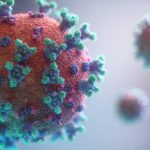Diabetes is one of the most common chronic diseases in the United States. The CDC estimates that 37 million Americans, or approximately one out of every ten people, have diabetes. Most of these cases are type 2, rather than type 1, diabetes. Diabetes rates are constantly increasing.1.4 million new cases are diagnosed in the U.S. each year.
This is detrimental not only to the individual’s health but also financially. The average medical expenses of someone with diabetes is 2.3 times higher than someone without diabetes.
What Causes Diabetes?
Both lifestyle factors and genetics contribute to the onset of type 2 diabetes. People who are overweight, obese, or physically inactive are more likely to develop the condition. Insulin resistance, which is the beginning of type 2 diabetes, commonly results from carrying additional weight.
However, lifestyle factors alone aren’t the sole cause of diabetes. There are over 150 DNA variations that contribute to diabetes, and many affected individuals also have family members with the condition. It is thought that lifestyle considerations combined with genetic predisposition cause diabetes.
Common Treatments for Diabetes
Healthy eating, exercise, and weight loss are common lifestyle changes that can treat diabetes. Additionally, oral medications and insulin are often used, with 88.6% of diagnosed adults using either one or both. The most commonly prescribed medication for the management of type 2 diabetes is metformin. Metformin is highly effective in reducing blood sugar levels, and it can also cause lower death rates due to cardiovascular disease.
While diabetes medication can help, combining it with lifestyle changes can be even more impactful. People who take medication while also increasing exercise and improving nutrition may be able to reduce, or even discontinue, their medications after a while.
Diabetes remission is maintaining normal blood sugar levels for at least three months without medication. While remission remains rare, it can be possible for some people, particularly with the incorporation of lifestyle changes into their treatment plans.
In one recent study, titled “What predicts drug-free type 2 diabetes remission? Insights from an 8-year general practice service evaluation of a lower carbohydrate diet with weight loss”, Dr. David Unwin et al. explore the results of a medical practice providing patients with advice on a lower-carbohydrate diet and weight loss.
Here is what they found:
“A low-carbohydrate diet-based approach achieved major weight loss with substantial health and financial benefit. It resulted in 20% of the entire practice T2D population achieving remission. It appears that T2D duration <1 year represents an important window of opportunity for achieving drug-free remission of diabetes. The approach can also give hope to those with poorly controlled T2D who may not achieve remission, this group had the greatest improvements in diabetic control as represented by HbA1c.”
Drug-free remission of diabetes is possible. This is particularly true when incorporating dietary changes such as lowered intake of carbohydrates. While Unwin et al. found that the chance of remission is higher the less time the person has had diabetes, improvements are also attainable in individuals who have had the condition for a longer duration.
Let’s take a closer look at diabetes remission.
Increasing Diabetes Remission Rates
The idea that type 2 diabetes can go into remission is fairly recent. Additional research is still needed to determine exactly who is able to enter remission and how they can maintain it.
Weight Loss
Based on the current evidence, weight loss is considered the most significant factor contributing to diabetes remission. Diabetes UK states that to increase the chances of weight loss and putting diabetes into remission, the individual should aim to lose around 15kg (around 33 lbs) shortly after diagnosis. This rapid weight loss type should only occur after discussing with a medical professional.
Achieving diabetes remission through weight loss does not equate to a cure. The weight loss must be sustained over a long period to stay in remission. If the person gains weight, their blood sugar levels may again enter the diabetic range.
Low-Carbohydrate Diet
Numerous studies, such as the one discussed earlier, have shown that low-carb diets are highly effective in managing type 2 diabetes and resulting in remission. Carbohydrates can greatly affect blood sugar levels. Therefore, reducing carbohydrate intake can lower blood sugar.
Exercise
Physical activity is another strategy in managing diabetes and entering remission. This is particularly true when in combination with healthy eating. Exercise increases insulin sensitivity, so the demand for insulin can decrease. Exercise also contributes to weight loss, which can support remission.
The Cost of Diabetes
In addition to the negative impacts on health, diabetes is also a costly disease. The American Diabetes Association estimates that diabetes costs $327 billion per year. Of these costs, $237 billion are direct medical costs, such as inpatient care, prescription medications, and doctor visits. The remaining $90 billion is due to reduced productivity.
Health and Wealth through Diabetes Remission
Type 2 diabetes remission, which can be achieved through factors such as weight loss, low-carbohydrate diets, and exercise, can improve the health and longevity of the individual. In addition to the medical impacts on the individual, remission can save a lot of money that would otherwise go to medical care and prescription drugs. Although more research is needed to determine how it can be achieved, there is hope for diabetes remission.






